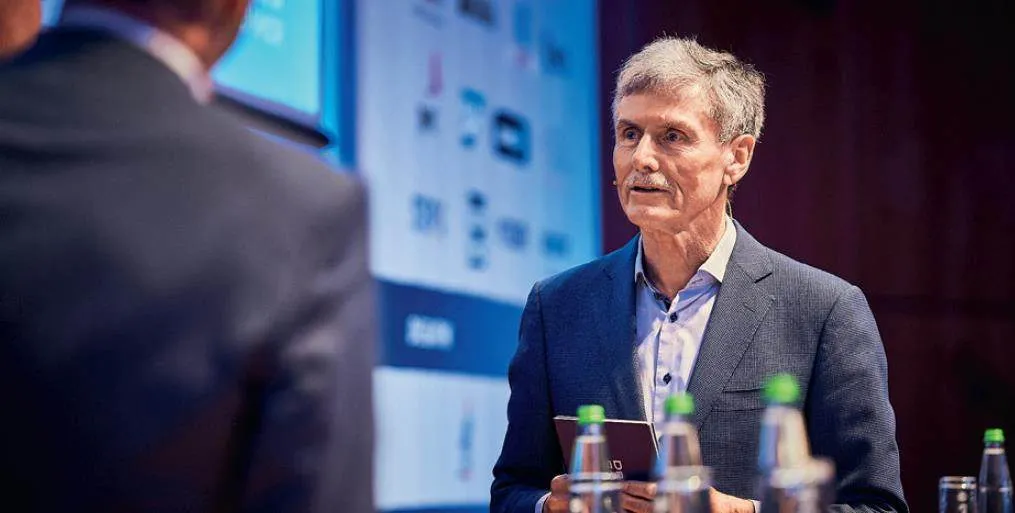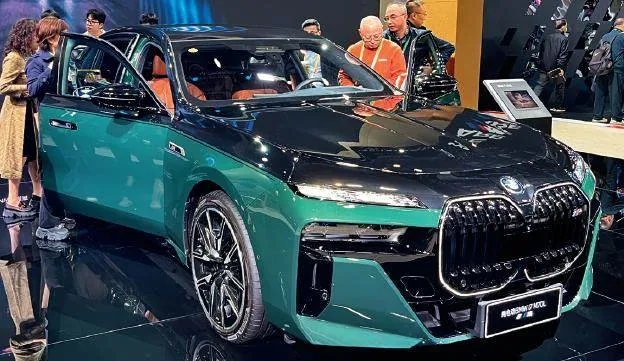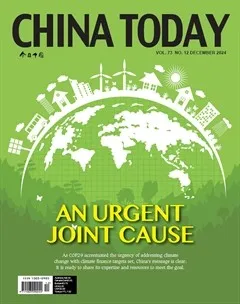German Automobile Expert:Cooperation instead of Tariffs


“Europe has missed this development opportunity because we are short of a long-term vision.”
MORE than 40 exhibitors from15 major vehicle brandsaround the world, representingthe latest cuttingedgetechnologies and models, gatheredat the seventh China InternationalImport Expo (CIIE), which was heldin Shanghai from November 5 to 10.Volkswagen, BMW, Mercedes-Benz andother German car companies exhibitedtheir leading models and cutting-edgetechnologies, expressing their intentionto continue deepening cooperation withChina and promote electrification anddigital transformation of products to meet the needs of Chinese consumers.
The European Commission's tariffson Chinese-made electric vehicles haveofficially come into effect recently, causingwidespread controversy in the politicaland business circles in both Chinaand Europe. According to FerdinandDudenhöffer, a well-known German automotiveexpert, Chinese carmakers arealready ahead of their German competitorsin many areas. In his opinion, theEU Commission's new tariffs on Chinesee-cars would harm Europe rather thanbenefit it.
China Today (CT ): What is China'sstanding in the global market of electric cars?
Ferdinand Dudenhöffer: Chinahas accumulated know-how in lithiumionbatteries over several decades.Contemporary Amperex TechnologyCo., Limited is now the largest batterymanufacturer in the world. Since thebattery accounts for up to 40 percentof the cost of an electric car, Chinesebrands have a clear cost and priceadvantage. Europe has missed this developmentopportunity because we areshort of a long-term vision. In the past,the heart of the battery industry was inthe Republic of Korea, but now it hasmoved to China.
CT : So would you say competitionfor German companies has intensified?
Dudenhöffer: Yes of course. However,German carmakers can also benefitfrom China's natural competitive advantagesif they work with Chinese companies,especially in batteries. The globalcar market is large and offers space forboth German and Chinese manufacturers.For this we need Chinese manufacturersto strengthen cooperation inthe automotive sector and should notdecouple from them.
CT: What are the biggest differencesbetween Chinese and German car manufacturersat the moment?
Dudenhöffer: There are customersurveys from China that have publisheda really interesting conclusion. In a nutshell:Young Chinese consumers preferto buy domestic products. For them,Porsche, BMW, Mercedes, and Audi arethe cars of their parents' generation.China's young people want modern electriccars with smart cockpits and autonomousdriving functions. And theyare developed in China, for example,XPENG, NIO, Chery and others.
CT : Does that pose challenges forGerman carmakers?
Dudenhöffer: It certainly does.While Tesla and Chinese manufacturerssuch as BYD, Chery, Geely, Li Auto,NIO, Xiaomi or XPENG are increasinglyestablishing themselves with new technologies,the sales of German carmakersare collapsing at record speed. The valueof the almost sacredly celebrated brandsof the German carmakers is meltingaway in China.
CT: Why has this happened?
Dudenhöffer: Production processessuch as gigacasting, which significantlyreduce production costs, are not on theagenda of German carmakers. The Chinesecounterparts, however, are intensifyingtheir research and applications.In the case of "software-defined cars,"China's tech giants, such as Huawei,Baidu and Tencent, are working closelywith the domestic automotive industry,thus taking automobiles to a new levelas a result. In China, there is excellentdigital infrastructure that is suitable fordeveloping the car of the future, while inGermany efforts are being made to plugdead spots. We are increasingly corneredby the huge cost disadvantagesand the slowness of Germany as a businesslocation.
CT: Does this mean there will be achange of course for German carmakers?
Dudenhöffer: Yes, and fast. Thecoming quarters will hardly differ fromthe current poor results. A realignmentalso has a lot to do with learning fromTesla and China. To learn that, you can'tstay in Germany, you have to go to Chinato learn about vehicle development.
CT : Late October, the EuropeanCommission decided to levy five-yearanti-subsidy tariffs on Chinese electricvehicles. What do you think of that?
Dudenhöffer: Like many othervoices in the automotive industry, I alsosay tariffs are a catastrophe! By passingtariffs, the European Commission willharm Germany, the German car industry,and our good cooperation with Chinesecompanies. The tariffs themselveshardly appear fact-driven. They seemhighly arbitrary, more like a political action.Now that Donald Trump has wonthe presidential election in the U.S., Germanyneeds a good relationship withChina because Trump might put pressureon Germany and the German carindustry after he takes office. The EuropeanCommission is therefore actingagainst Germany with its tariffs. If youask me, it's a shame. The commission'saction is harming its own industry.
CT: What are the consequences of theadditional tariffs on China's electric cars?
Dudenhöffer: Additional tariffsartificially increase prices for electriccars from China, which means thatfewer people will buy electric carsand climate change will not be sloweddown. At the same time, opportunitiesfor the development of battery in Europeare being destroyed as the marketfor electric cars loses momentum. If noelectric cars are sold, there is no needfor battery factories, which are subsidizedwith billions of euros from Brusselsand taxes from citizens.
In addition, our carmakers are currentlyhaving a hard time selling theirelectric models in China. We woulddefinitely have a chance if we sold moreelectric cars in our home market Germany,and then the demand for electriccars from Germany would increase significantly.But our automotive industrydoes not have the scaling advantages tobe competitive. As a result, the tariffswill not only have a short-term negativeeffect, but also destroy the future of theGerman car industry.

